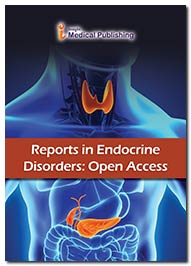The effect of two hypercaloric diets on the hormonal and metabolic profile of the adrenal glands
Abstract
Objectives: Who disrupts who? It is not clear what the interaction is between a high calorie diet (HCD) and adrenal axis activation in obesity. The goal was to assess the effect of two hypercaloric diets commercialized in Algeria on the hormonal and metabolic profile of the adrenal gland in rabbits. Methods: Two classes of local male adult rabbits (n=16) and a finishing diet (FD) as a control for 15 weeks. Results: It has been shown that HCD-received animals have developed visceral obesity, dyslipidemia and insulin resistance IR by dramatically increasing body weight, visceral fat tissue and adrenal weight, combined with elevated plasma levels of ACTH, cortisol, leptin and insulin. The HCD diet increased the levels of cortisol in the visceral adipose tissue (VAT), in peri-adrenal adipose tissue (PAAT), and decreased cortisol levels in the liver. HCD also causes the process of inflammatory fibrosis associated with the migration and spread of chromaffin cells in the adrenal gland.
Conclusions: This study gives new insights into how dietinduced obesity studied on local rabbits affects the biology of the adrenal gland. The correlation of these changes with paracrine connections between the chromaffin cell and glomerulosa indicates potential therapeutic methods for obese-related steroid hormone dysfunction
Open Access Journals
- Aquaculture & Veterinary Science
- Chemistry & Chemical Sciences
- Clinical Sciences
- Engineering
- General Science
- Genetics & Molecular Biology
- Health Care & Nursing
- Immunology & Microbiology
- Materials Science
- Mathematics & Physics
- Medical Sciences
- Neurology & Psychiatry
- Oncology & Cancer Science
- Pharmaceutical Sciences
